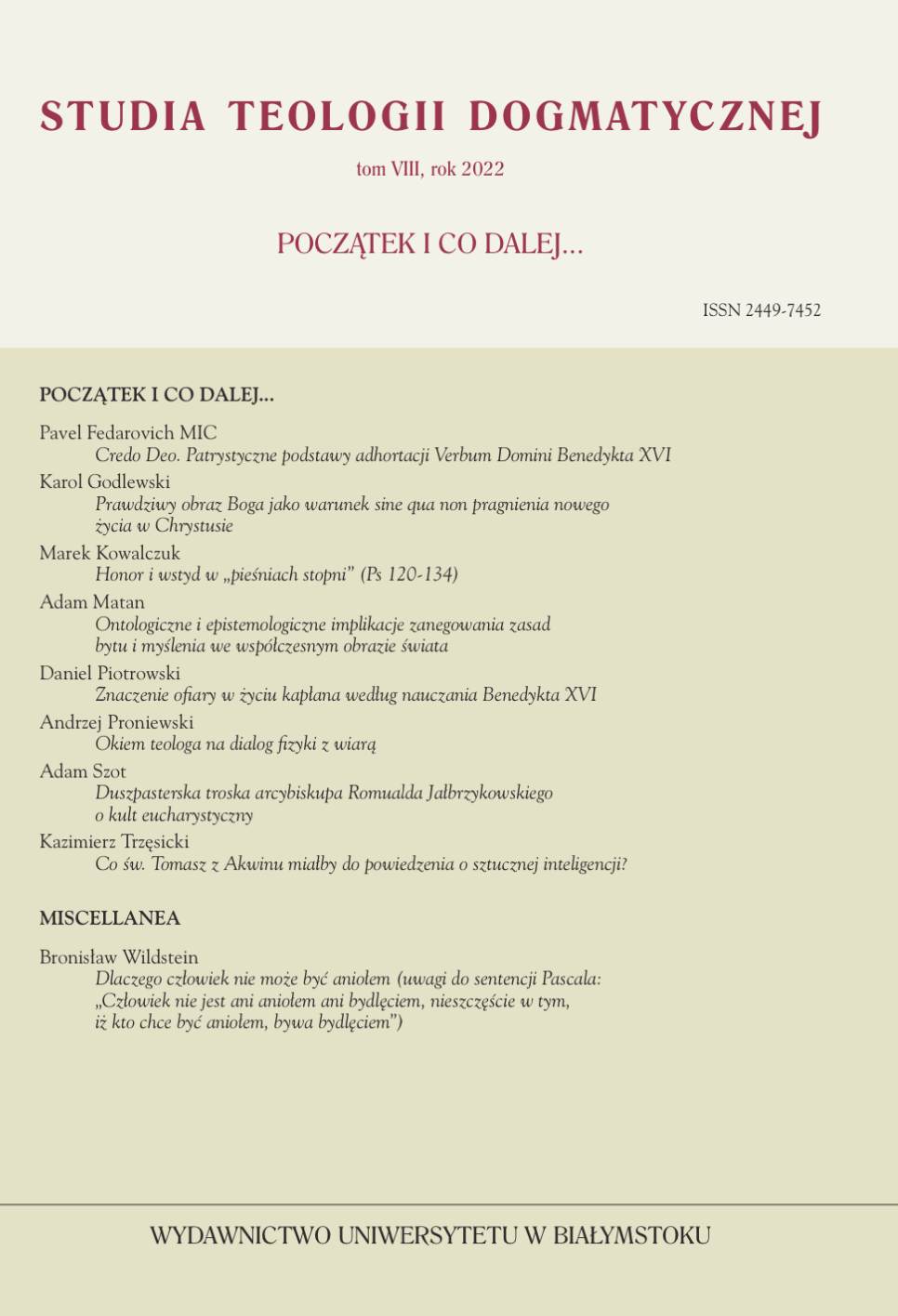DLACZEGO CZŁOWIEK NIE MOŻE BYĆ
ANIOŁEM (UWAGI DO SENTENCJI PASCALA:
„CZŁOWIEK NIE JEST ANI ANIOŁEM ANI
BYDLĘCIEM, NIESZCZĘŚCIE W TYM, IŻ KTO
CHCE BYĆ ANIOŁEM, BYWA BYDLĘCIEM”
WHY MAN CANNOT BE AN ANGEL (REMARKS ON PASCAL’S
MAXIM: “MAN IS NEITHER AN ANGEL NOR A BEAST,
THE UNHAPPINESS LIES IN THE FACT THAT WHOEVER
WISHES TO BE AN ANGEL, OFTEN BECOMES A BEAST”
Author(s): Bronisław WildsteinSubject(s): Ethics / Practical Philosophy, Social Philosophy, Sociology of Religion
Published by: Wydawnictwo Uniwersytetu w Białymstoku
Keywords: human; angel; potential; human nature;
Summary/Abstract: The article discusses why humans cannot be angels. It begins by offeringa simple answer that humans cannot be angels because they are human, butthe author delves deeper into the subject. The author explores the distinctionbetween humans and angels and the implications of Pascal’s maxim: “Man isneither an angel nor a beast; the unhappiness lies in the fact that whoeverwishes to be an angel often becomes a beast.” The article argues that thismaxim reveals much about human nature and condition.The article discusses how the modern era’s pursuit of cognitive absolutismfurther detaches humans from their true nature and realities. This detach-ment, along with an anthropocentric vision of mastery over nature, resultsin unforeseen consequences such as the recent pandemic. The article warnsagainst ignoring human limitations while also advocating for a balanced viewof human potential. Ultimately, it suggests that the desire to transcend humannature can lead to a loss of self-awareness and a distorted perspective on therelationship between humans, nature, and the divine.
Journal: Studia Teologii Dogmatycznej
- Issue Year: 2022
- Issue No: 8
- Page Range: 121-130
- Page Count: 10
- Language: Polish

